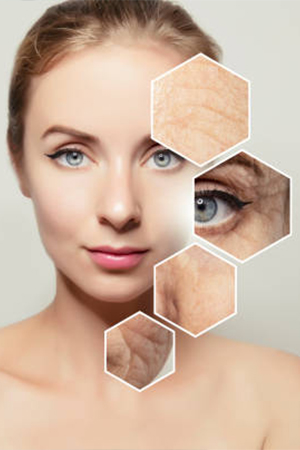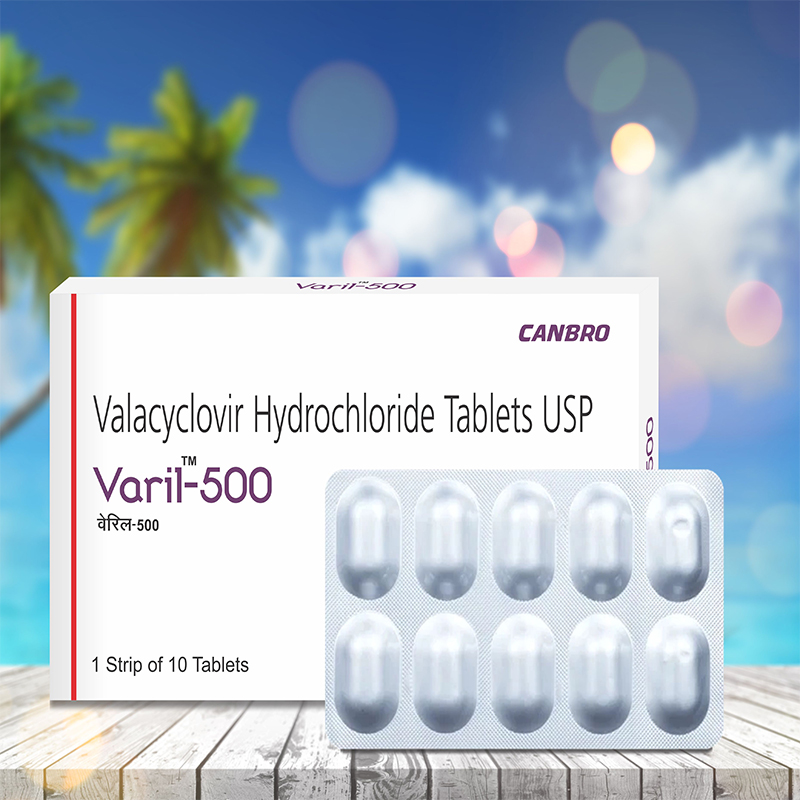Working Days
Mon-Sat: 9.00 to 6.00
₹75.80
Aciclovir 5% Cream
HERER

Aciclovir 5% Cream is an antiviral medication used to treat cold sores and genital herpes. The active ingredient in Aciclovir 5% Cream is aciclovir, which works by stopping the growth of the virus and accelerating the healing process. A thin film of cream should be applied to the infected and immediately adjacent skin areas 5 times daily at 4-hour intervals during the day, omitting the nighttime application. It is important to read the patient information leaflet available from the pharmacist and to consult the doctor or pharmacist if there are any questions.
Aciclovir 5% Cream should not be used in the eyes, inside the mouth or nose, or on the genitals. Aciclovir 5% Cream may cause side effects such as itching, burning, stinging, or rash at the application site. If any of these side effects persist or worsen, it is important to inform the doctor or pharmacist immediately. Aciclovir 5% Cream should not be used by pregnant or breastfeeding women without consulting the doctor first. It is important to inform the doctor or pharmacist about all the medications being taken, including over-the-counter medications, vitamins, and herbal supplements, to avoid any potential drug interactions.
Uses
- The condition known as “cold sores/fever blisters” (herpes labialis) is treated with this drug.
- It can lessen sensations (such as tingling, discomfort, burning, and itching) and hasten the healing of the sores.
- The class of drugs known as antivirals includes acyclovir. It functions by halting the virus’s development.
- The use of this drug does not treat or stop the spread of herpes to other people. It doesn’t stop an incident from happening again.
Directions of use
- To apply Aciclovir 5% Cream, it is important to wash your hands before and after use. A thin film of cream should be applied to the infected and immediately adjacent skin areas 5 times daily at 4-hour intervals during the day, omitting the nighttime application.
- It is important to apply the cream to the affected area as soon as possible after the symptoms appear. The cream should be applied with a clean finger or cotton swab, and care should be taken to avoid touching the eyes or mouth after applying the cream.
- It is important to read the patient information leaflet available from the pharmacist and to consult the doctor or pharmacist if there are any questions.
- Aciclovir 5% Cream should not be used in the eyes, inside the mouth or nose, or on the genitals. It is important to inform the doctor or pharmacist about all the medications being taken, including over-the-counter medications, vitamins, and herbal supplements, to avoid any potential drug interactions
Side Effects
- Aciclovir 5% Cream may cause several side effects, although not everybody gets them. Some people may experience side effects, particularly when they first start using the product.
- The possible side effects of Aciclovir 5% Cream include itching, burning, stinging, or rash at the application site.
- If any of these side effects persist or worsen, it is important to inform the doctor or pharmacist immediately. Aciclovir 5% Cream may also cause an allergic reaction, which can include urticaria/hives (pale/red raised skin with severe itching) or any swelling of the face, mouth, tongue, or throat.
- If an allergic reaction occurs, it is important to stop using Aciclovir 5% Cream and contact the doctor immediately.
- It is important to inform the doctor or pharmacist about all the medications being taken, including over-the-counter medications, vitamins, and herbal supplements, to avoid any potential drug interactions.
- Aciclovir 5% Cream should not be used by pregnant or breastfeeding women without consulting the doctor first.
Precautions
- Before using acyclovir, notify your doctor or pharmacist if you are allergic to it; or to valacyclovir; or if you have any other allergies. This product may contain inactive chemicals, which can cause allergic reactions or other difficulties. Talk to your pharmacist for further details.
- Before using this drug, inform your doctor or pharmacist of your medical history.
- Tell your doctor if you are pregnant before using this drug. Discuss the risks and benefits with your doctor.
- Acyclovir may enter breast milk in modest doses. However, the medicine is unlikely to damage a nursing infant. Consult your doctor before breastfeeding. Avoid breastfeeding if you have herpes sores on or near your breast.
| Brand Name | HERER |
|---|---|
| Composition | Aciclovir 5% Cream |
| Pack | 10gm |








